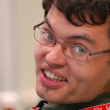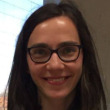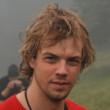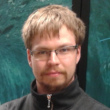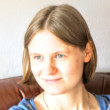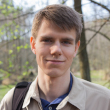Group Leader
Dariusz Plewczyński
Email: d.plewczynski@cent.uw.edu.pl
Correspondence address: Plewczynski Lab, Koszykowa 75, 00-662 Warsaw
Current members
Abhishek Agarwal, MSc
Position: PhD Student
Position: PhD Student
Alexander Myronov, MSc
Position: PhD Student
Position: PhD Student
Antoni Pietryga, MSc
Position: PhD Student
Position: PhD Student
Paulina Urban, MSc
Position: PhD Student
Position: PhD Student
Jędrzej Kubica, BSc
Position: MSc Student
Position: MSc Student
Krzysztof Spaliński, BSc
Position: MSc Student
Position: MSc Student
Jakub Józefowicz
Position: MSc Student
Position: MSc Student
Former lab members
- Ziad Al Bkhetan: Ziad Al Bkhetan is a PhD student at University of Warsaw, He obtained his master degree in computer science from Warsaw University of Technology, Faculty of Mathematics and Information Science. He has good experience in Software Engineering, Data Mining and GPU Programming. Currently he is working on Genomic Interactions Prediction.
- Anna Biernacka: Anna Biernacka has a master's degree in biotechnology from Institute of Biotechnology, Warsaw University of Technology, and doctoral degree in biological sciences from Institute of Biochemistry and Biophysics, Polish Academy of Sciences. Her scientific interests is genomic instability, in particular double-strand breaks (DSBs) formation mechanisms. She seeks for a better understanding of the genome sensitivity to DSBs and ways for maintaining genome stability under stress conditions, including replication stress, in relation to higher order chromatin organization.
- Anna Bugaj: Interested in the biological background of neuropsychiatric disorders, researching chromatin organization in Autism in context of structural variation.
- Ashutosh Choudhury: Ashutosh has completed his BSc and MSc from the National Institute of Technology Rourkela, India. He has joined the LGFS group as a PhD student in December 2021. His main area of interest will be to experimentally study chromatin conformations using high throughput techniques. He is associated with the wet lab experimental domain in our group. Before joining our group he has worked on experiments like Protein expression, metagenomics and NGS. He has also one publication from his work on the study of Butterfly wing patterns and colouration.
- Wayne Dawson: Wayne Dawson, PhD, is a physicist and structural biologist. He has been a postdoc in the Laboratory of Functional and Structural Genomics since April 2016. He received his PhD from The University of Tokyo. His main focus over the years has been on RNA/protein structure prediction and folding, electron transfer proteins, and currently, chromatin structure and problems related to the influenza virus.
- Doni Dermawan: Doni Dermawan is currently a Master's Student in the field of Applied Biotechnology at the Faculty of Chemistry, Warsaw University of Technology. He has obtained his Bachelor of Pharmacy, and Apothecary Profession at Universitas Padjadjaran, Indonesia. He is interested in computer-aided drug design (CADD), computational approaches in molecular biology, and a rational design of new drugs based on protein folding, molecular dynamics simulation, and binding affinities calculation. Doni is doing his M.Sc within the project "Bats as a source of new strains of viruses from the subfamily Coronoviridae posing a threat to the human population" financed by the IDUB against COVID-19.
- Franciszek Grymuła: Franciszek graduated from Warsaw University of Technology as a Bachelor of Science in Mathematics and currently he is pursuing Master of Science degree in Data Science at WUT. He has a professional experience in financial risk management and financial analytics, whereas his academic interests include computational genomics, statistics and machine learning. In the Lab, Franciszek is working on his Master's thesis which concerns analysis of transcription factors binding affinity using a network representation of chromatin based on data from ChIA-PET experiments.
- Anastasiya Gurova: Master Student in CeNT Master Student of Biotechnology in WUT Bachelor of Engineering in Biomedical Engineering Support engineer in Roche Diagnostics Poland Project: Comparison between ChIA-PET and HiChIP technologies using ChIA-PIPE pipeline for Yoruban family for the CTCF factor Initial results:The number of intrachromosomal high frequency PETs for HiChIP is much higher than for ChIA-PETMost of the common peaks obtained from ChIA-PET and HiChIP are contained in the ChIP-Seq
- Miguel Jiménez: Miguel Angel has a master degree in Biotechnology from University of Malaga. He is a PhD student in the Laboratory of Imaging Tissue Structure and Function of Nencki Institute of Experimental Biology PAS. His main field of study is Molecular biology and Microscopy, having a strong interest in Programming.
- Wiktoria Kabza: Wiktoria Kabza is a second year MSc Molecular Biotechnology student at the University of Warsaw. She graduated with a BSc in Biotechnology from the same University. Her master thesis is a continuation of a bachelor project and considers the mitochondrial retrograde signaling and epigenetic gene expression changes. Molecular biology and genetics are the main science areas which fascinate her the most. Precise patterns of gene expression are indispensable for developing a complex multicellular organism and understanding this process is important not only to satisfy our curiosity about the world, but also to push the boundaries of medical knowledge and improve our quality of life. The 21st century has allowed us to improve the research equipment in such a way that we can generate hundreds of billions of results in a very short time. During the course, she learnt how the science of bioinformatics is important for analysis and interpretation of this huge amount of biological data. We are able to use algorithms and informatics to understand the composition of biological systems in healthy and diseased states. She is truly amazed that such knowledge would enable a better understanding of the mechanisms leading to pathological conditions and could improve the treatment of genetic diseases and aid the development of personalized medicine. Therefore, she decided to undertake an extracurricular project which considers the remodeling of human genome architecture in response to replication stress in the Laboratory of Functional and Structural Genomics.
- Denis Kazakievich: Denis is a PhD student at joint interdisciplinary PhD program at Uniwersytet Medyczny w Białymstoku and Universiteit Hasselt. He is working to construct statistical models for RNA-Seq data analysis and to develop practical applications of whole-cell modeling . He earned MEng in Bioinformatics from Politechnika Wrocławska and MD from Medical University of Grodno.
- Jan Kostrzewa: My research interest is time series forecasting and implementation of time series prediction methods in biology. My private hobby is space industry (remnant of his student days and activities in the SKA).
- Agnieszka Kraft: Agnieszka Kraft is a student at the Bioinformatics and Systems Biology master's programme. Her interests are in genome architecture, especially structural variants and their link to phenotypes.
- Michał Łaźniewski: Michał Łaźniewski scientific interest focus mostly on proteins their sequence, structure, function and interactions with small drug-like compounds. Constant progress in sequencing techniques results, among others, in the exponential growth of the number of known protein sequences. Using profile and meta-profile methods this new sequences can be linked to other alre ady characterized proteins. These information can be used to group similar proteins, predict the structure of newly identified ones and ,to some extent, predict their function. These tasks can be achieved even if compared object share only marginal sequence similarity. Using protein structure a number of analysis can be performed, protein dynamics, predicting protein-protein interactions or calculating binding affinities of small molecules to interesting proteins. These analysis can help us to better understand biological processes at the molecular level and to to predict new drugs.
- Giovanni Mazzocco: Giovanni is a bioinformatician and data scientist. He has a Bachelor degree in Biotechnology and a Master degree in Industrial Biotechnology from the University of Padua, Italy. He is a PhD candidate at the Institute of Computer Science at the Polish Academy of Sciences (specialisation: data science). His main scientific interests are Bioinformatics and Data science.
- Piotr Migdał: Data science freelancer with PhD in quantum optics and information theory from ICFO - The Institute of Photonic Sciences, Castelldefels, Spain. Current interests: machine learnings, data visualization, gifted education.
- Ayatullah Faruk Mollah: Ayatullah Faruk Mollah, PhD(Engg) is an Assistant Professor and Former Head (Officiating) of the Department of Computer Science and Engineering, Aliah University, India. He has completed his doctoral study from Jadavpur University, India. His research interests include bioinformatics, big data, deep learning, machine learning, image and video analysis etc. He is a member of IEEE, USA and Indian Unit of International Association for Pattern Recognition (IAPR). He was a Senior Software Engineer at Atrenta (I) Pvt. Ltd. Noida, India. So far, he has authored more than 25 articles in refereed journals and conference proceedings. Dr Mollah is also a Co-Principal Investigator of the Multi-script project funded by Department of Science and Technology Govt. of India. His current focus is on structural and functional analysis of human genome.
- Zofia Parteka-Tojek: Finished Bachelor and Masters degree in the field of Bioinformatics and Systems Biology at Faculty of Mathematics, Informatics and Mechanics, University of Warsaw. Currently working on her PhD in the field of Computer Sciences at Faculty of Mathematics and Information Science, Warsaw University of Technology. Interested in 3D chromatin structure modelling from genomic and imaging data and in super-resolution microscopy image processing.
- Michał Piętal: Michal has been researching transformations of chromatin 2D interaction matrices (Hi-C / ChIA-PET) into 3D models or ensembles, with the use of various 2D processing techniques, including fuzzy graph distance maps and Multi-Dimensional Scaling (MDS). He was also involved in Hemagglutinin molecule de novo modelling, with the use of fuzzy contact maps of homologous templates from PDB. In addition, he was engaged in protein-protein interface classification from sequence data, with 2D maps prediction stage. More recently, he has been working on the effort to create a measure comparing different source data (i.e. 2D, 4D) describing chromatin 3D structure, with the use of an entropy measure over the source data. Also, designed and continues the development of cell-cycle-driven 3D re-modelling pipeline, to be merged with the HSP70 expression data and mathematical modelling thereof.
- Kamen Radew: Kamen is experienced data scientist having a keen interest in data-induced headaches that cannot be relieved with conventional remedies. Those include, but are not limited to, problems from the area of Big Data (from gigabytes to petabytes). He is developing new bioinformatical tools and their application to analyze the connection between genotype and phenotype in case of various diseases of affluence (cancer, diabetes, coronary heart disease, etc.) as well as the impact of the genotype on the immune system based on influenza virus infection.
- Benedykt Rak: Benedykt Rak interests are focused on studies regarding protein-ligand interaction, mainly Molecular Docking. Attempts to make use of vast bio logical data for improving current docking methods. Statistical Data analysis. Application in silico studies for drug development process.
- Julia Różycka
- Anna Rusek: Anna Maria Rusek graduated Silesian University as a Master of Science in Biotechnology and completed postgraduate studies at Jagielonian University in the area of Laboratory Medicine. Currently she is a PhD student at Interdisciplinary Doctoral Studies in English at Medical University of Bialystok in cooperation with CeNT and in the process of caring out specialization in the field of Laboratory Medical Genetics in Łódź. The main field of interests is medical biology, in particular cancer signalling pathways and microRNAs involvement in cancer progression and molecular medicine, especially mechanisms of novel gene and immune therapies as well as molecular aspects of resistance to existing therapies.
- Michał Sadowski: Michał Sadowski interests are from the field of physics and genome biology and are presently focused on genome architecture, genome organization and their link to gene regulation. These areas of study can be explored by an analysis of data coming from experimental methods which capture chromatin conformation both locally (3C, 4C) and genome-wide (Hi-C and ChIA-PET). This analysis can lead us to better understanding of gene expression mechanisms and provide a new insight into relation between gene expression and genomic variation. In his present work Michał Sadowski is trying to combine conformation capture data, genomic variation data and gene transcription data, in order to pursue more complete explanation of gene regulation processes, genome spatial arrangement and its evolution.
- Rafał Sosnowski: Rafał Sosnowski, a software engineer at the Faculty of Mathematics and Information Sciences at Warsaw University of Technology. Programmer of central banking systems. My main interests include banking, artificial intelligence (especially neural networks and transformers), and most recently, polymer conformation.
- Przemysław Szałaj: Przemek Szałaj is interested in the functional and structural genomics, with a particular interest in the 3D chromatin organization. He developed simulation software for inferring the multiscale chromatin models using Hi-C and ChIA-PET data. Currently he works on applying the bioimaging data for refinement of the simulations. He is also interested in the variation of the structural genomic properties and their inheritance, with the ultimate goal being to better understand the significance of the genome folding on its function and the mechanisms that govern it.
- Teresa Szczepińska: Teresa Szczepińska, PhD, is a bioinformatician. She has bachelor’s degree in molecular biology from Interfaculty Individual Studies in Mathematical and Natural Sciences at Warsaw University and master’s degree in bioinformatics from VU University Amsterdam. She accomplished doctoral degree at Nencki Institute of Experimental Biology, Polish Academy of Sciences. Teresa’s research interest is in genomic data, higher order chromatin organisation and its relation to transcription regulation. She is experienced in high throughput sequencing data analysis and in retrieving of biological information with it’s knowledge-based selection.
- Marcin Tatjewski: Marcin Tatjewski is focused on inventing and applying data min ing and machine learning methods aimed at extracting novel information from large -scale data sets. His current challenges are in processing proteomics data – from single-organism proteomes or function- specific sets of protein segments up to analyzing complet e set of known proteins. He likes to spend most of his time on exploring Distributional Proteo mics – his idea for modelling amino-acid relationships based on computational analysis of their distributions in large-scale protein sets.
- Kamila Winnicka: Kamila Winnicka is mathematician interested in knot theory and its application in genomics. She studies knots from the perspective of algebraic topology and graph theory. Currently, she works on finding specific structures in chromatin like knots and links.
- Przemysław Wróblewski: Przemek is a programmer. He has a Bachelor degree in Computer science and a Master degree in Psychology from the University of Warsaw, Poland.
- Weronika Wronowska: Weronika Wronowska interests are focused on Systems Biology. In particular in the area of her interest is mathematical modeling of life processes and functional analysis of high through-put proteomic, transcriptomic and lipidomic data. She was involved in the project in collaboration with MD Anderson Cancer Center investigating heterogeneity of gene expression profile of bladder cancer subtypes. In which thanks to a comprehensive analysis of transcriptomic data, it managed to establish markers of tumor progression. Currently, her research focuses on a formal modeling of the sphingolipid metabolism. In particular the role of this bioactive lipids in progression of human disease like cancer and neurodegenerative disorders. In this field a variety of modeling approaches are used, such as deterministic modeling using different types of kinetics and constraint based large-scale modeling of whole cellular metabolism. She is also interested in developing of new tools for integration of high through-put data with formal models. Her two main goals are (i) development of a global cellular metabolism model of high predictive value, and (ii) dissemination of mathematical models as tools for medical diagnosis and the design of new drugs.
- Vladyslav Yatsenko: MSc AI student at MiNI PW BSc in Computer Science at MiNI PW Fullstack and Blockchain developer at archblock.com Excited about all the hottest trends in Computer Science! Project: Improving peptide:TCR prediction via language models training and inference automation
- Natalia Zawrotna: Natalia Zawrotna is a student of Molecular Biology master's program at the University of Warsaw. She is interested in the functional and structural genomics. The main field of interests is long-range chromatin interactions and spatial genome organization. In collaboration with other members they application to experimental work in NGS-based 3D genomics techniques. In addition, she deals with the sequencing of a human genome using the Oxford Nanopore Technologies, in particular MinION.
- Julian Zubek: Julian Zubek is a computer scientist at heart. During his master studies he was interested in programming languages and compilers. He was investigating memory management strategies used in modern script languages interpreters, he also co-developed Skarb -- an experimental Ruby to C compiler. Currently his main research interests shifted towards machine learning, ensemble classifiers, and their applications in bioinformatics. He has experience in statistical data analysis of proteomic and epigenetic data. He is researching a multi-level and multi-scale approach to classification of biological entities, in which information from various sources and different levels of description are combined to make a successful prediction. Julian is using Python programming language on everyday basis. He enjoys sharing his expertise with others and popularizing Python infrastructure for data analysis.
